Uncover the fascinating story of perfumery, from ancient civilizations to the intricate blends of today. Explore the evolution of scents on this aromatic trip.
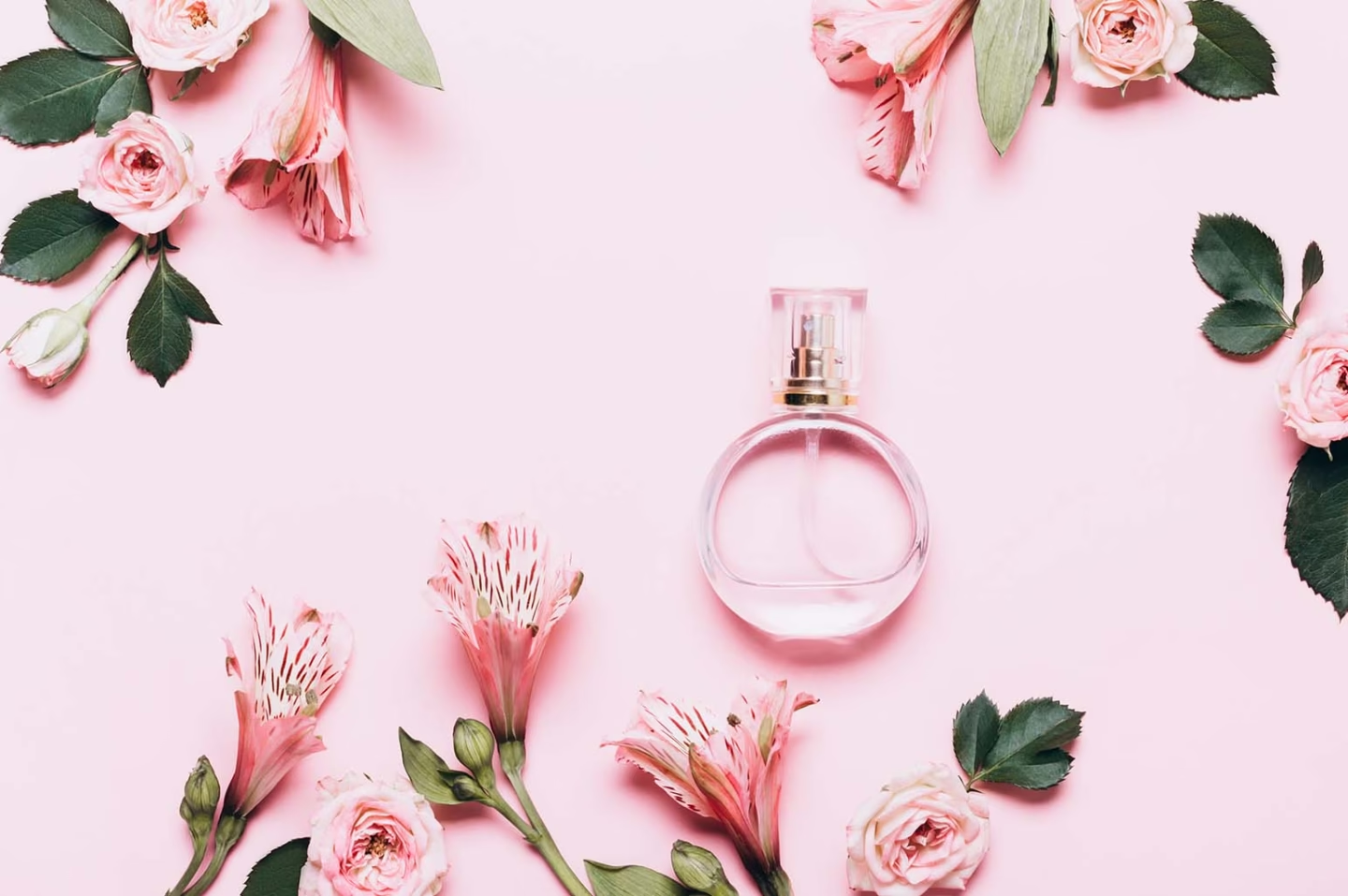
Our senses have been charmed by perfumery for ages because it is a wonderful fusion of art and science. The history of perfumery is a tapestry woven with invention, passion, and a touch of mystery, from the alluring scents of ancient civilizations to the complex mixes of modern perfumers. Join us as we explore the intriguing development of smells, from ancient elixirs to contemporary masterpieces, on a fragrant trip through time.
Key Takeaways
- The history of perfumery is extensive and dates back to early cultures.
- Modern technology has replaced outdated approaches in fragrance extraction processes.
- A handy approach to sample different smells is through perfume subscription services.
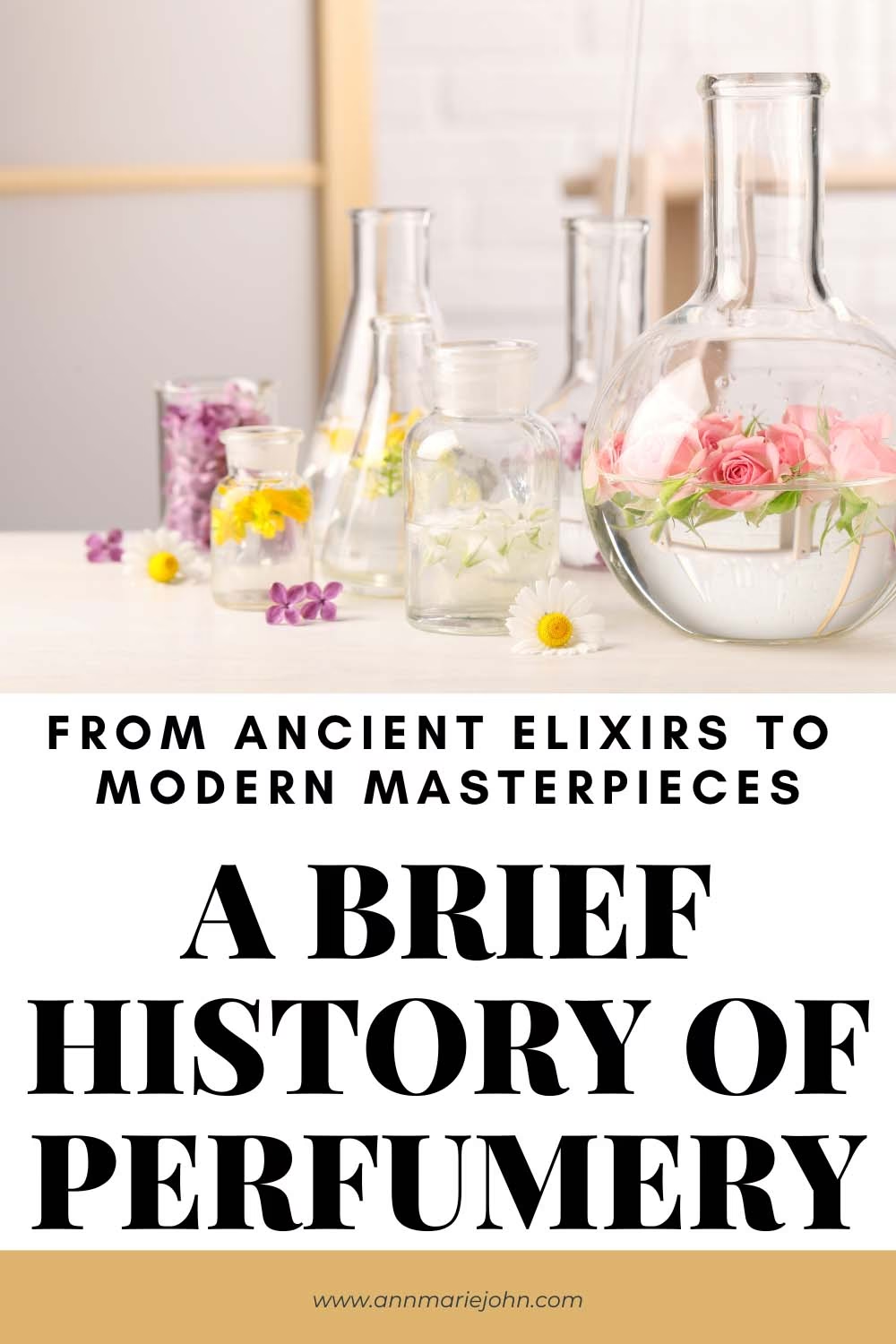
The Aroma of Antiquity: Ancient perfumery
Long before contemporary perfumery was developed, ancient cultures understood the power of aroma. Aromatic plants, flowers, and resins were employed for both their medicinal and odor-masking effects. Here are some fascinating moments from this scented era:
- Egyptian elixirs were made from plant elements like myrrh, frankincense, and lily by the civilization’s early pioneers of perfumery. These potions were essential to both daily living and religious ceremonies.
- Greek Influence: By introducing distillation processes, the Greeks improved perfumes. They often combined oils with wine to create wonderful aromas while making perfumes using techniques like maceration and enfleurage.
- Roman Extravagance: As a sign of wealth and grandeur, the Romans embraced the perfume industry. They used scented oils to decorate themselves with and to smell their dwellings and public areas. It was said that Nero himself dropped rose petals from a mechanized ceiling on his guests!
Middle Ages and Renaissance Perfumery: The Alchemical Art
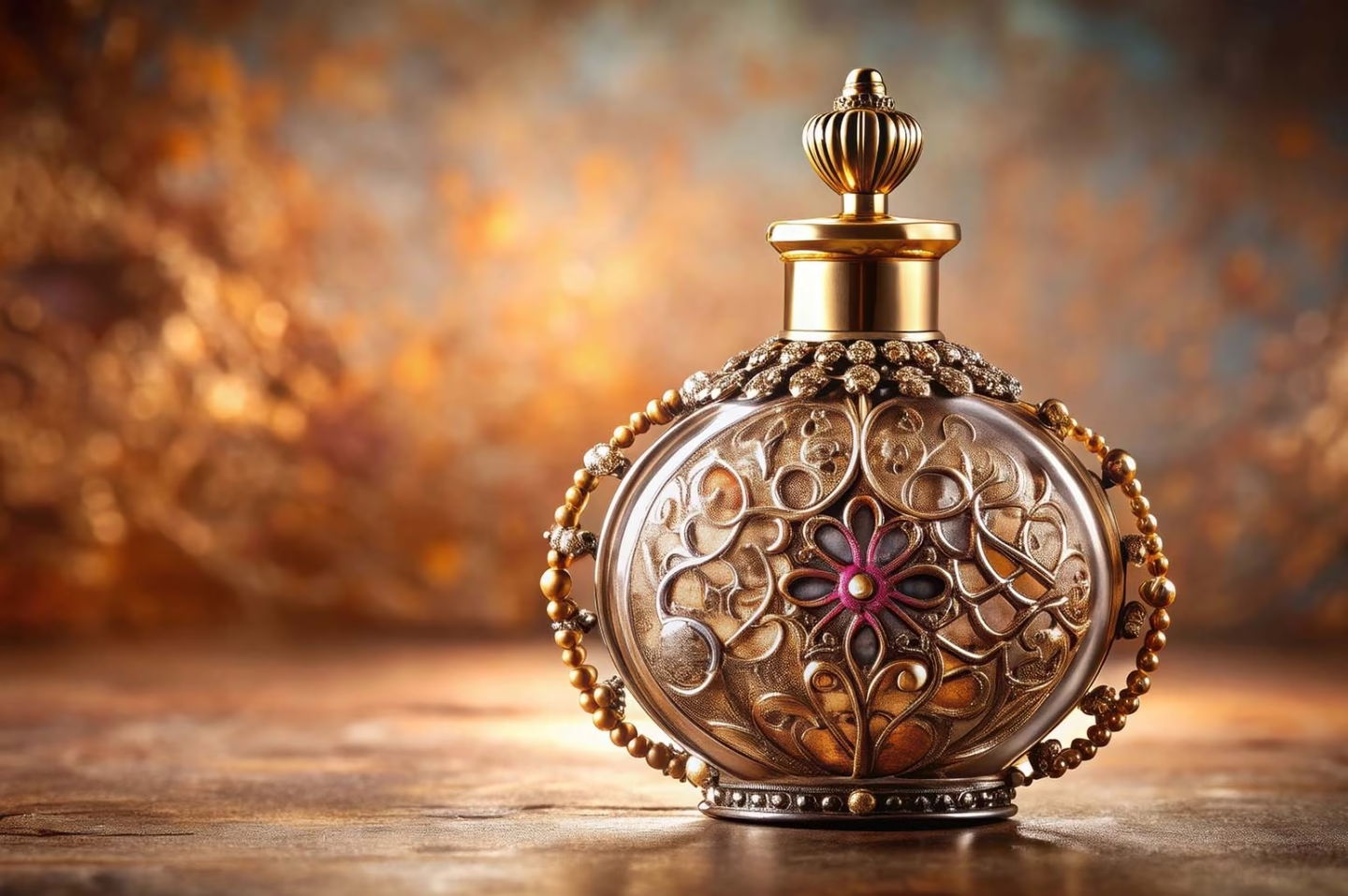
Alchemical techniques and inventions cleared the path for more smell research throughout the Middle Ages, which saw a change in the field of perfumery. Exotic materials and expertise from the East affected the evolution of fragrance as cultures embraced commerce and travel.
- The process of steam distillation was perfected by Arab perfumers, who were able to extract essential oils from fragile flowers like roses and jasmine. Along the Silk Road, these priceless attars were exchanged as highly sought-after commodities.
- European Renaissance: The Renaissance saw a resurgence of perfumery as fresh experiments were inspired by a passion with science and alchemy. As apothecaries and chemists improved their craft, more people could afford scents.
The Science of Scent in Contemporary Perfumery
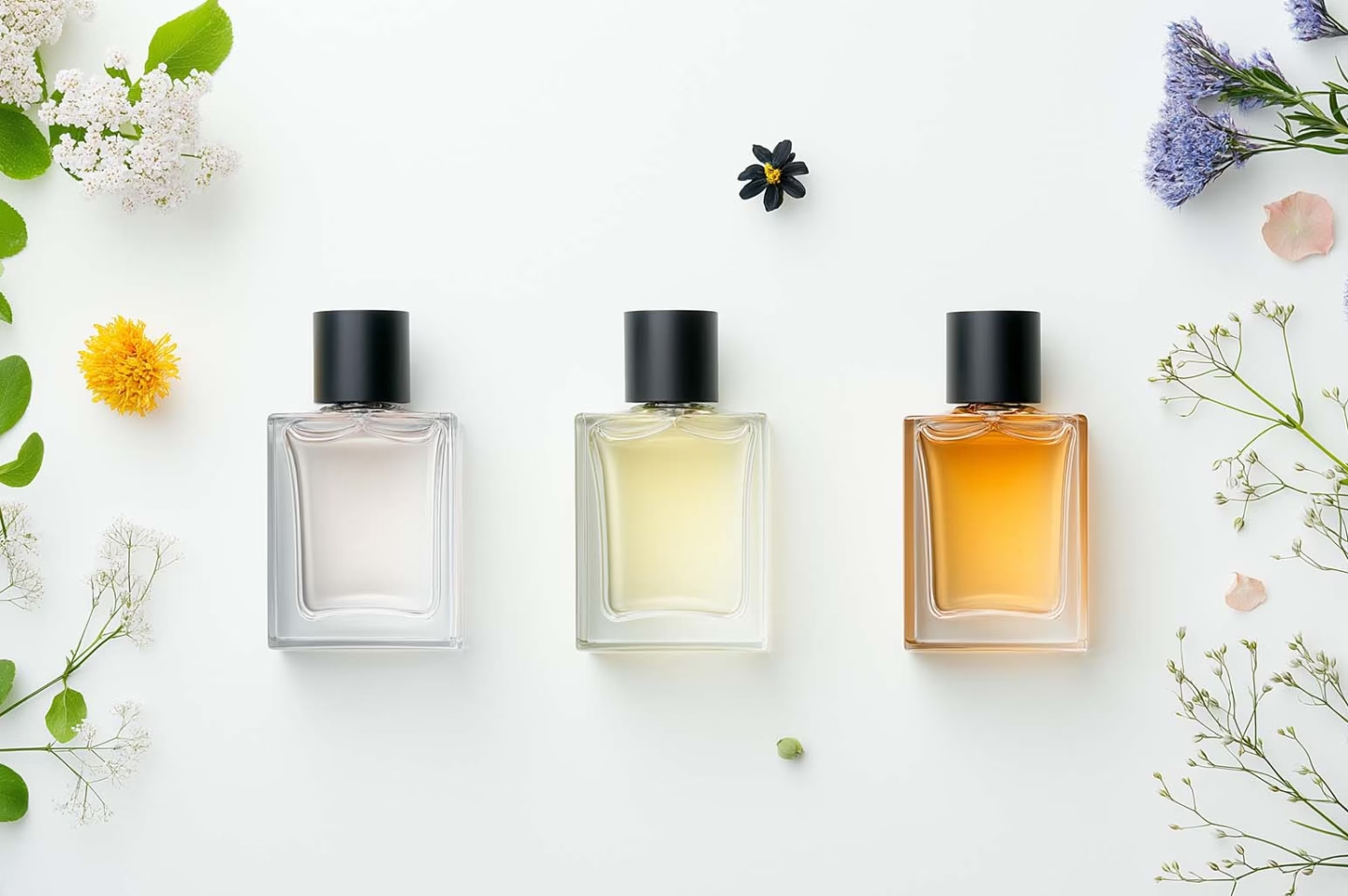
An important turning point in the history of perfumery was the industrial revolution. Technology and chemical advancements transformed the fragrance industry and made it feasible to produce synthetic scents. During this time, great perfumers rose to prominence, and classic perfumes were created:
- Chanel No. 5: Gabrielle “Coco” Chanel unveiled Chanel No. 5, a revolutionary concoction of aldehydes and floral notes, in 1921. This enduring fragrance established modern perfumery and is now regarded as a mark of refinement.
- As the scent business developed, niche perfumery—which focuses on original and aesthetic compositions—emerged. Specialized perfumers who catered to a wide range of preferences, such as Serge Lutens and Frederic Malle, challenged preconceived beliefs about fragrance.
Subscription to Fragrance: A Contemporary Fragrance Adventure
It might be fascinating and difficult to experience different fragrances in our fast-paced environment. In this situation, the idea of a perfume subscription makes sense. A perfume subscription is a practical and enjoyable way to try out different scents without buying a full-sized bottle. Subscribers have a variety of alternatives at their disposal, including:
- On a regular basis, a carefully chosen assortment of perfumes would be brought to their door.
- Access to both well-known and obscure smells, enabling users to find uncommon and obscure perfumes.
- The chance to discover their distinctive aroma and broaden their sensory horizons.
The Scented Future: Beyond Innovations
As we look to the future, the world of fragrance will continue to develop, fusing innovation and heritage. The future of fragrances is being shaped by innovations in ecological methods, digital scent technologies, and personalization. The adventure of perfumery continues to be as interesting and fragrant as ever, whether it’s utilizing AI to develop unique aromas or investigating new sustainable extraction techniques.
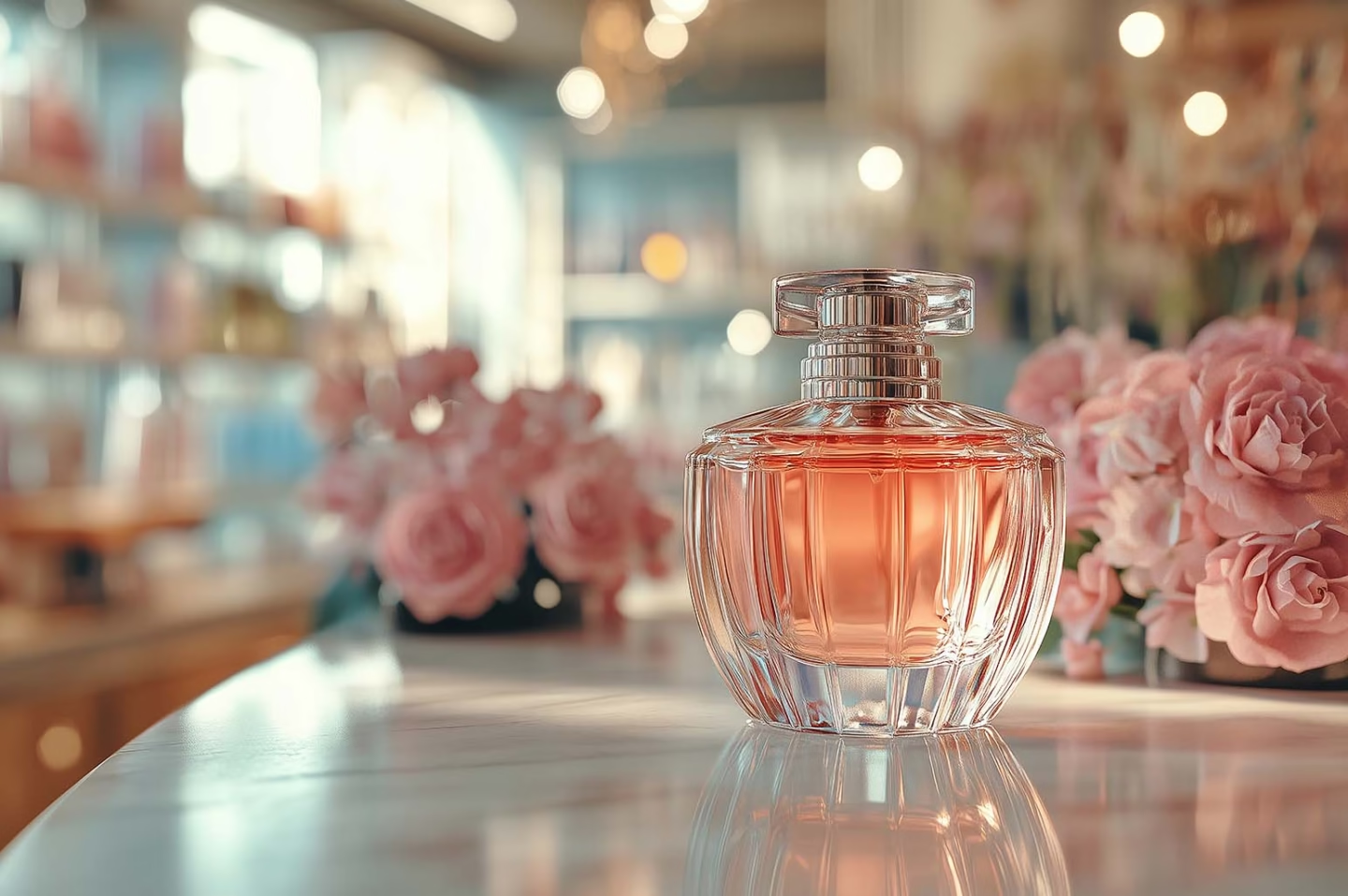
In Conclusion
We part ways with our scented tour through the history of perfumery, feeling both nostalgic and eager. We are reminded of the eternal power of fragrance by the alluring aromas of ancient elixirs, medieval alchemical experiments, and contemporary masterpieces created by perfumers today. As history and innovation coexist together in perfumery, our senses are delighted and connected to the past while being propelled into the future and filled with unlimited possibilities. Remember that each perfume has a piece of the fascinating history we’ve investigated, making every spray a voyage through time and a celebration of human ingenuity, whether you’re savoring a historically inspired scent or joyfully embracing the most recent olfactory invention.
